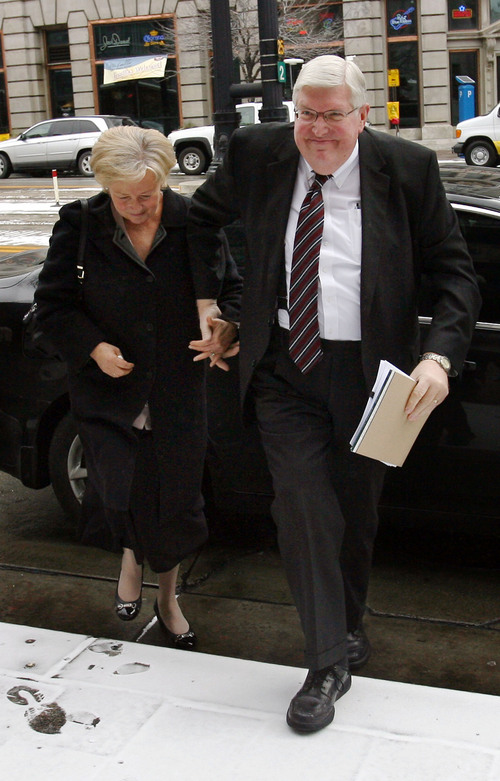This is an archived article that was published on sltrib.com in 2014, and information in the article may be outdated. It is provided only for personal research purposes and may not be reprinted.
Federal prosecutors are asking a judge to reconsider his decision to resentence Brigham City doctor Dewey MacKay, who got 17 years shaved off of a 20-year prison term for indiscriminately issuing prescriptions for high-powered pain medication.
Federal rules require a sentencing hearing where attorneys can present arguments and evidence, Assistant U.S. Attorney Michael Kennedy wrote in a motion asking U.S. District Judge Dee Benson to reconsider part of his decision last week that reduced MacKay's original sentence for his 2011 conviction on 40 counts of illegal distribution of painkillers to patients who once filled his office seeking prescriptions.
"The victims were denied the right to be heard," as well as prosecutors, Kennedy wrote, asking Benson to hold a formal sentencing hearing.
MacKay's attorney said he will answer the motion after the government files a memorandum stating its arguments in favor of resentencing.
"We will respond accordingly by filing an appropriate opposition," said attorney Peter Stirba.
Benson issued a ruling reducing the sentence after the 10th Circuit Court of Appeals sent the case back to him asking for a more specific finding on how much prison time MacKay was given for each charge.
Benson originally had sent MacKay to prison for 20 years based on a minimum mandatory sentence that was required because MacKay was convicted for causing the death of patient David Wirick, who died after taking two prescription drugs.
But since that conviction, the U.S. Supreme Court in a similar case held that controlled substances like the oxycodone and hydrocodone Mackay prescribed to Wirick must individually be capable of causing a death for a mandatory minimum sentence to be enacted.
Prosecution experts testified at the trial that the death likely came from a combination of drugs, while the defense asserted that pneumonia could have killed him.
Benson said a sentence of three years was appropriate to reflect the seriousness of his conviction and to act as a deterrent to others.
MacKay was indicted in August 2010 on 129 charges related to prescribing more than 1.9 million hydrocodone pills and nearly 1.6 million oxycodone pills between June 1, 2005, and Oct. 30, 2009, and accused of pushing 80 to 120 patients through his office in an eight-hour workday.







